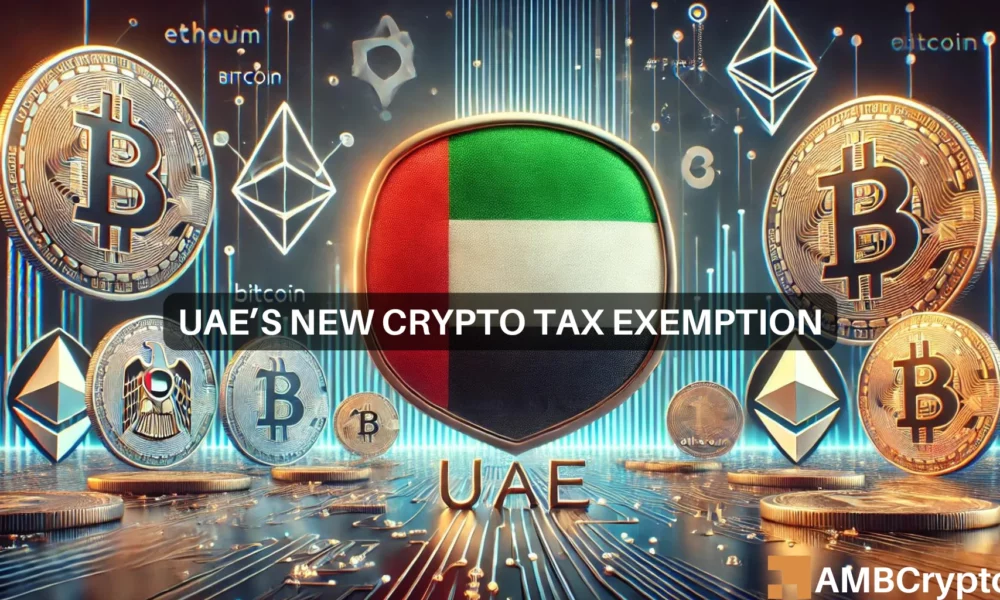In a move that signifies strong support for the cryptocurrency market, the United Arab Emirates (UAE) has implemented a tax exemption on value-added tax (VAT) for crypto transactions, including retroactive exemptions. This policy shift aims to establish a more crypto-friendly environment in the UAE, fostering increased interest from both individual crypto enthusiasts and institutional investors looking for favorable tax conditions for their digital asset dealings.
The retroactive application of this VAT exemption extends to past transactions, potentially relieving tax burdens on previous crypto activities within the UAE. By eliminating VAT obligations on crypto assets, the UAE aims to offer its residents and businesses greater financial flexibility and incentives to participate in cryptocurrency transactions, encouraging further growth in the crypto market within the country.
UAE Setting the Pace for Crypto Adoption
The UAE’s decision to remove VAT on crypto transactions highlights a larger trend of crypto adoption across the Middle East. With a shift towards diversifying economies beyond oil dependency, digital assets have emerged as a significant focus area for countries in the region. The UAE, alongside other Gulf nations, has been actively investing in blockchain infrastructure, regulatory frameworks, and strategic partnerships to cultivate a thriving crypto ecosystem. By introducing tax exemptions, the UAE is leading by example, potentially influencing other nations as competition for crypto investments intensifies globally.
This shift in policy also prompts discussions on whether major economies like the United States might follow suit with similar exemptions. While the U.S. currently has a more intricate tax structure for cryptocurrencies, including capital gains and transaction taxes, the UAE’s initiative may spark a reevaluation among policymakers. Favorable tax and regulatory environments, as seen in countries like the UAE and Singapore, are attracting talent, capital, and innovative projects that would otherwise flow to traditional financial centers.
On a broader scale, the Middle East’s swift embrace of crypto-friendly policies showcases the region’s willingness to embrace blockchain innovation. These efforts not only draw in international investments but also prompt local businesses to explore the potential of blockchain applications within their operations.
As the UAE takes the lead in VAT exemptions, it paves the way for other Middle Eastern nations to follow suit, solidifying the region’s increasing influence in the global digital asset landscape. The UAE’s tax exemptions on crypto transactions are likely to expedite the country’s adoption of cryptocurrencies, positioning it as a prominent crypto hub. Through tax relief and support for blockchain initiatives, the UAE is positioned at the forefront of the global transition towards digital assets, playing a crucial role in shaping the future crypto economy.

